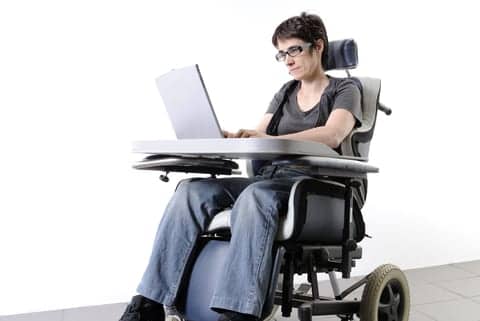Researchers based at Brunel University London recently concluded a study that found individuals affected by multiple sclerosis (MS) who have a mobility deficit should be holistically assessed when offered a power wheelchair.
A media release from Brunel University London reports the researchers studied 91 wheelchair users, each of whom was severely affected by MS. They found that 15% of study subjects had problematic pain, which indicated the need for a more professional assessment.
Tilt-in-space (TIS) chairs, the study noted, demonstrated the ability to relieve some of the pain that was typical among the study subjects. The researchers also noted that 30% of the study subjects were affected by adverse health conditions pronto to aggravation as the result of constant sitting. Those conditions were noted as sores, clots, osteoporosis, and severe edema.
By looking at people with advanced MS, the study also highlighted 10 health problems including fractures, stroke, amputation, and chronic joint pain that would benefit from a medical evaluation in addition to the usual assessment by a multiprofessional team of therapists and engineers.
A statement from Brunel University London suggests current guidelines on MS need to be updated so that risks of osteoporosis, deep vein thrombosis, obesity, and coronary heart disease are managed from an early stage.
Lorraine De Souza, professor of rehabilitation and director of the Centre for Research in Rehabilitation, said: “We tend to treat MS as symptoms develop, but, by looking ahead at those severely affected, we can see what we can do now to prevent or delay other potentially life-threatening health problems.
“We can also see where healthcare could do more to help those with advanced MS live a fuller and more comfortable life for longer.”
The paper “Problematic Clinical Features of Powered Wheelchair Users with Severely Disabling Multiple Sclerosis,” by Lorraine H De Souza and Andrew O Frank, is published here.
[Source: Brunel University London]





